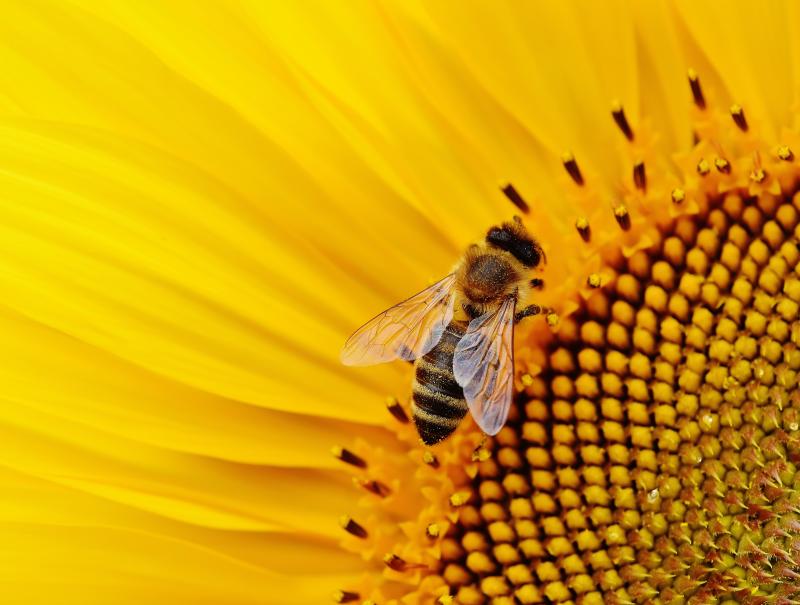Stay always informed
Interested in our articles? Get the latest information and analysis straight to your email. Sign up for our newsletter.

"We need every square metre of soil" to grow wheat to prevent "empty plates" in Europe and hunger in the Global South. With this argument, agricultural lobbyists and their political allies pushed through the suspension of greening requirements in the Common Agricultural Policy (CAP) shortly after the Russian invasion of Ukraine. As a result, 21 member states decided in 2022 to use the „ecological focus areas" (EFA) previously dedicated to biodiversity for agricultural production.
However, a new analysis shows that hardly any food was grown on tilled ecological focus areas, but animal feed such as maize and soy, and the oilseed sunflower. As a result, the total area dedicated as ecological focus area has decreased by 40 % across the EU.
"In order to maintain agricultural productivity in the future, at least 10 % of agricultural land must be used for biodiversity. We call on the EU Commission to pursue this goal of the Biodiversity Strategy and not to prolong the harmful and counterproductive EU derogations for fallow land: the share of valuable land for biodiversity in European agriculture must be increased!", say the organisations BirdLife Europe, the Arbeitsgemeinschaft bäuerliche Landwirtschaft, Corporate Europe Observatory (CEO) and GLOBAL 2000 - Friends of the Earth Austria.
Bread grain acreage less than 1 percent
Precise figures on the crops cultivated on ecological focus areas come from Austria. There, as a request by GLOBAL 2000 under the Environmental Information Act to the Ministry of Agriculture revealed, more than 70 % of the converted ecological focus areas were used for the cultivation of maize and soya, and only 0.6 % (!) for bread grain (wheat and rye).
"Austria's leading agricultural lobbyists and politicians have unanimously used the fight against hunger in Africa as an argument for suspending the greening requirements. But almost all that was produced was animal feed. This is an expression of a cynical policy that instrumentalized real hunger in the Global South in order to undermine environmental measures of the European agricultural policy", says Helmut Burtscher-Schaden, GLOBAL 2000.
"Suspending the greening requirements made no contribution to alleviating hunger - which, as we know, is less a problem of availability than of access to food. They only served the short-term economic interests of a few and came at the expense of society and the environment. Essential elements of the farm to fork and biodiversity strategies are under fierce attack by conservative political forces in all three EU institutions. It is deeply worrying that these forces are making misleading and scientifically unsubstantiated claims, thus preventing an EU policy that is as urgent as a sound climate policy", adds Hans van Scharen, researcher at CEO.
Politics of Fear against the consensus of science
From the very beginning, the scientific community clearly opposed the demands of the agricultural lobbyists. The already too small areas of biodiversity must not be further decimated under any circumstances, but should be expanded in the long term in line with the goals of the Green Deal. Their unanimous recommendation to policy-makers was to make greater use of existing agricultural land for food production, in line with the Farm to Fork strategy. "Europe's response to the turmoil in agricultural markets triggered by the war in Ukraine has been the exact opposite of what science has recommended - and which, moreover, is the central strategy of the European Green Deal to which the EP and Council have committed themselves," says Marilda Dhaskali, Birdlife Europe's EU Agriculture and Bioenergy Policy Officer: "If policies that go against the scientific consensus prevail in the EU, we will fail miserably to meet the challenges posed by the climate and biodiversity crises."
To the detriment of agriculture
"We must not play one crisis off against the other. Without halting the loss of species, we cannot guarantee food security in the medium and long term. The so-called 'non-productive areas' are important for soils, farmers and biodiversity, because they improve soil fertility and provide necessary habitats for the preservation of biodiversity," explains Henrik Maaß of the Arbeitsgemeinschaft bäuerliche Landwirtschaft (AbL): "Instead of focusing unilaterally on food security, the CAP must be developed further in the direction of global food sovereignty, which can only be achieved with agroecology, the protection of common goods and justice along the value chain. The retention of the fallow land obligation is just as much a part of this as adequate remuneration for the social services provided by farmers.
ENDS
See Briefing here.